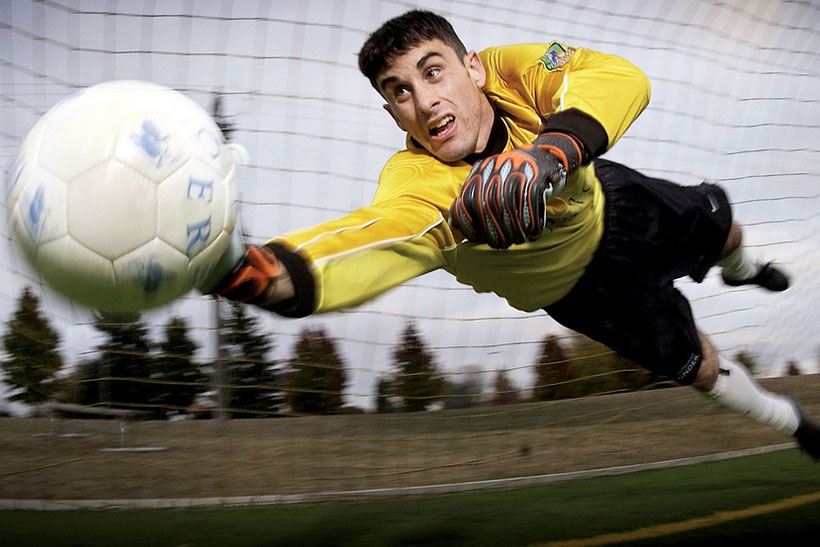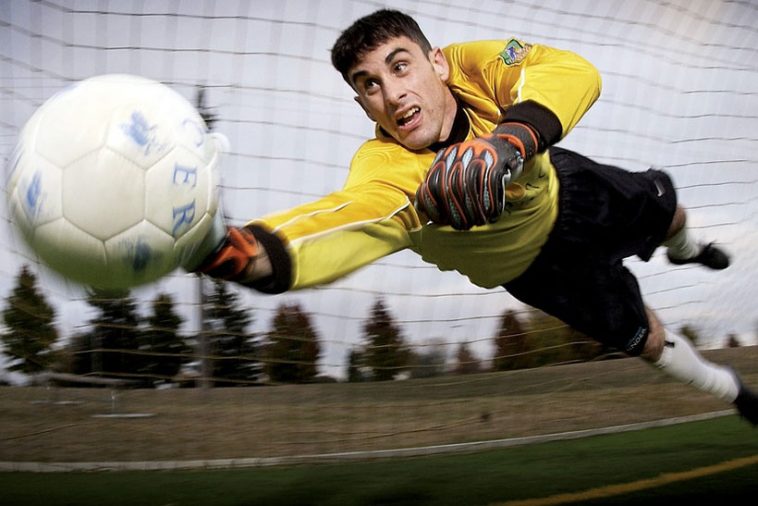- Like
- SHARE
- Digg
- Del
- Tumblr
- VKontakte
- Flattr
- Buffer
- Love This
- Save
- Odnoklassniki
- Meneame
- Blogger
- Amazon
- Yahoo Mail
- Gmail
- AOL
- Newsvine
- HackerNews
- Evernote
- MySpace
- Mail.ru
- Viadeo
- Line
- Comments
- Yummly
- SMS
- Viber
- Telegram
- JOIN
- Skype
- Facebook Messenger
- Kakao
- LiveJournal
- Yammer
- Edgar
- Fintel
- Mix
- Instapaper
- Copy Link
 Much like all leading sports stars, football players have to ensure that their fitness level is of the higher standard. Conditioning is vital for football players of all standards and could be the difference between yourself and an opponent.
Much like all leading sports stars, football players have to ensure that their fitness level is of the higher standard. Conditioning is vital for football players of all standards and could be the difference between yourself and an opponent.
Elite players such as Cristiano Ronaldo take conditioning very seriously. When he first made his debut for Manchester United in 2003, he was told that he needed to become bigger and fitter to make the grade. That lesson has stuck with him throughout his career and ensures that he is one of the fittest players in the world even when the season is drawing to a close. This is the reason why his club side Juventus, remain among the favorites to win the UEFA Champions League with NoviBet.
Top 3 Training Programs That ALL Fooball Players Need to Utilize
So, what training programs should keen football players be interested in? Here are three that every footballer needs to utilize in order to maintain that competitive edge on the field.
#1. Endurance Training
The obvious training that all aspiring football players should do is endurance training. Football matches last for 90 minutes and very little of that time is spent standing still; meaning that good cardiovascular fitness is the bare minimum that is needed. This could be achieved by going for a run for at least 30 minutes twice a week.
It doesn’t have to be a difficult run; it just needs to get the blood flowing through your body. Over time you will feel the significant benefits of this when it comes to your game, as you will still be a healthy level when other players on the pitch are faltering. As a player, you will have the edge on the opposition. When partaking in this training, you should consider the position that you play; for instance, if you are a central midfielder, you will need to be able to run for a more extended period of time than a central defender.
#2. Interval Training
Unlike many other sports, footballers have to be fit for both long periods and also short burst of sprints. Unlike endurance training, interval training is vital for all types of player’s, as the need for short bursts of speed is needed for all positions.
Also unlike endurance training, interval training has to be hard work. The athlete must work at a higher level for the rewards to be felt. 100-metre athletes commonly use this as it works on reaction timing as much as the sprinting speeds itself. You can set out cones at least 50 metres apart and sprint from one side to the other. There must be a more extended rest period in between sets for you to catch your breath. This type of training could be the difference between running away from a defender to score a vital goal and your team losing an important game.
#3. Weight Training
The importance of weight training has a brilliant outcome on your general fitness as well as improving your performance on the football field. It is essential for all positions as it develops a player’s explosive power as well as their strength. This can be achieved through bench presses and bicep curls. Of course, since football is a sport where your legs are needed, it is essential for you to be working on all muscles equally.
To improve explosive power further, you can work with a plyometric box. Here you can aim to jump up and down from it as many time as possible within a minute, but remember not to lose the standard of the jumps.
The Bottom Line
To maintain the peak performance necessary to compete as a competitive footballer, your training program and conditioning is just as important as your skills on the field. Utilizing endurance, interval, and weight training is what I like to call the three keys to success.
About Jason Spencer
Jason Spencer has a tremendous enthusiasm for all facets of health, fitness and physical performance that stems from an athletic lifestyle from childhood. Jason was fortunate enough to compete in collegiate football and learned to love the challenges that physical activity placed on the body. As Jason progressed through his higher education and became increasingly aware of how science is applied to physical activity and how it reveals the benefits of exercise, he realized very quickly that he wanted to pursue a career that gives him the opportunity to teach others to compete, challenge, and push themselves towards something more valuable to them than anything else; health, fitness and self worth. Being a fitness professional allows Jason to do this for them and he is always incredibly grateful for that. Jason has a Bachelor of Science degree in Neuroscience from Muhlenberg College in Allentown, PA. Neuroscience and his acquired knowledge of the nervous system and muscle stimulation techniques has been extremely instrumental towards building a unique ability and feel for training the body for optimal form and function. As a personal trainer he is certified with ACSM (American College of Sports Medicine). He's also a strength & conditioning specialist with NSCA (National Strength & Conditioning Association). He has additional certifications in both kettlebell principles & techniques (Equinox), and Flexibility & Corrective Exercise (Swedish Institute of Health Sciences in NY). Jason has worked as a trainer and conditioning specialist in a variety of fitness facilities over the years such as: LA Fitness in Piscataway, NJ, the YMCA in Metuchen, NJ, and Equinox Fitness Clubs in New York, NY. He also does private in-home sessions all over the Manhattan area.

